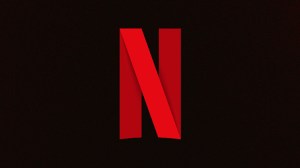Monday afternoon played host to a spectacular solar eclipse, with millions around the country taking to the outdoors to see the cosmic event. Just a few hours, some ironic searched have started to peak on Google, including “my eyes hurt” and “why do my eyes hurt.”
Videos by ComicBook.com
According to Google Trends, searches for both of those terms are at their highest since at least 2017, the last time a solar eclipse totality strolled over the United States. Though Google doesn’t provide actual numbers, the searches are scoring “100” on the tracking website, compared to 2017’s score of 64.
Though may people embracing the event were able to purchase special “solar” glasses, NASA officials continued advising people to not look directly at the eclipse. In fact, a popular brand of the glasses issued a recall Friday as the American Astronomical Society (AAS) issued a warning that fake glasses had managed to enter the market.
“In recent days it has become clear that one or more unidentified factories in China are now producing counterfeit eclipse glasses printed with the name and address of a different Chinese factory, Cangnan County Qiwei Craft Co., which is known to manufacture safe products. Some also copy Qiwei’s artwork, and some include the name and/or logo of Qiwei’s principal North American distributor, Solar Eclipse International, Canada (SEIC),” the group said in a March 22 warning.
It added, “Some of these newly identified counterfeits are indistinguishable from genuine Qiwei products and appear to be safe. Others look like Qiwei’s eclipse glasses, but when you put them on, you realize they are no darker than ordinary sunglasses. So, these products are not just counterfeit, but also fake –– they’re sold as eclipse glasses, but they are not safe for solar viewing.”
The next total eclipse isn’t set to happen until 2026 and even then, it won’t be able to be viewed in the United States. “A total solar eclipse will be visible in Greenland, Iceland, Spain, Russia, and a small area of Portugal, while a partial eclipse will be visible in Europe, Africa, North America, the Atlantic Ocean, Arctic Ocean, and Pacific Ocean,” NASA says of the August 12, 2026 event.








